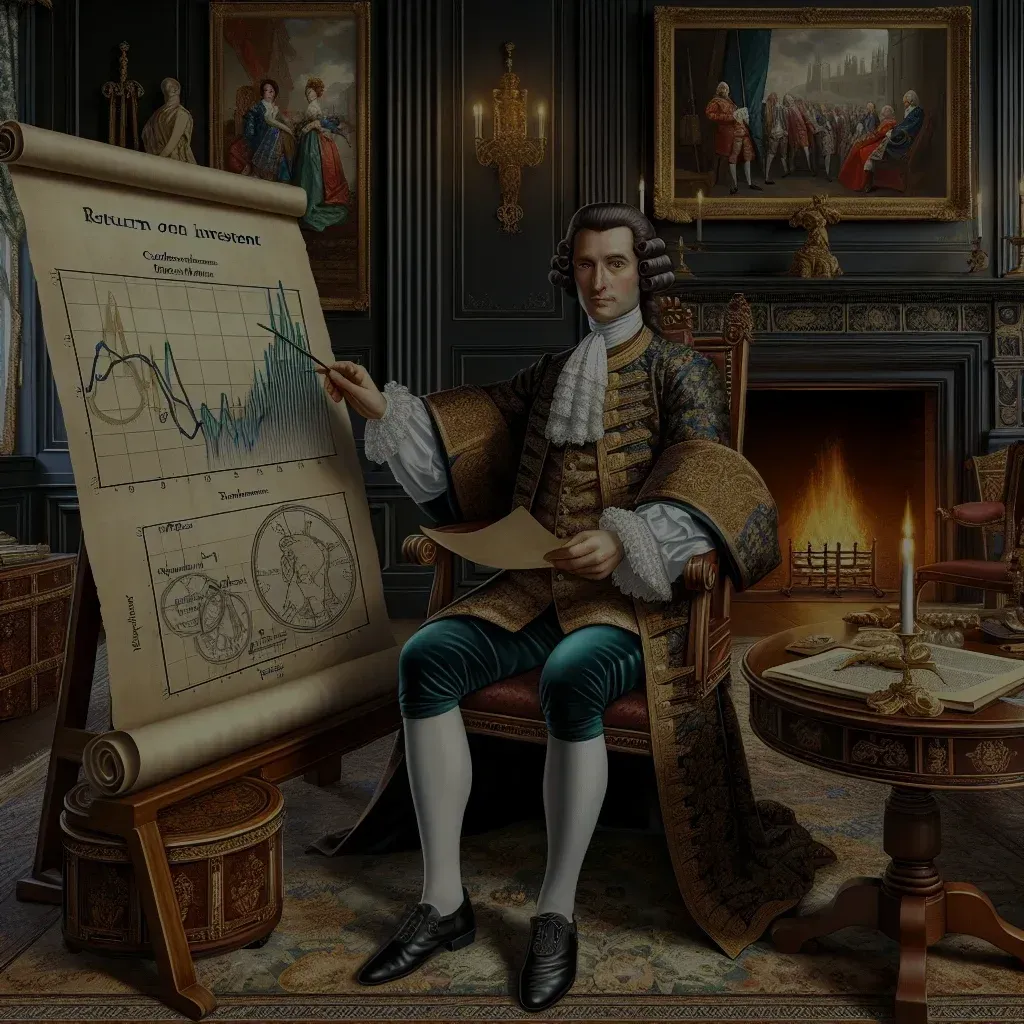In the wake of Queen Elizabeth II’s remarkable tenure, the ascension of King Charles III to the British throne marked a new era for the monarchy. As the world observes the reign of King Charles III, it becomes imperative to evaluate the return on investment (ROI) of his leadership. This assessment spans across economic ramifications, cultural contributions, political stability, and the public sentiment surrounding his reign. Through a journalistic lens, this article delves into these critical aspects to provide a comprehensive overview of King Charles III’s impact on the United Kingdom and beyond.
Analyzing the Economic Impact of Charles III’s Reign
Under King Charles III, the British economy has witnessed both challenges and opportunities, reflecting the broader global economic context. The transition period saw a significant focus on sustainability, aligning with Charles III’s long-standing environmental advocacy. His efforts to promote green initiatives and sustainable practices across industries have spurred economic activity in sectors such as renewable energy and technology. The shift towards a greener economy aims to not only address climate change but also to position the UK as a leader in sustainability, attracting investments and fostering job creation.
The economic implications of Charles III’s reign are also evident in the tourism sector. The monarchy has historically been a focal point for international tourists, and King Charles III’s reign has continued to draw visitors keen to witness a new chapter in British history. Events such as state visits, royal ceremonies, and public engagements have stimulated local economies and supported the hospitality and retail sectors. The ripple effects of these engagements contribute to a robust tourism industry that remains a vital part of the UK’s economic landscape.
Despite the positive strides, the economic impact of Charles III’s reign is not without its challenges. The COVID-19 pandemic’s lingering effects, coupled with geopolitical tensions, have posed hurdles in maintaining economic stability. King Charles III’s approach to fostering economic resilience is closely watched, with emphasis on innovation and adaptability as key strategies. The success of these measures in navigating economic uncertainties will be a defining aspect of the ROI of his reign.
Cultural Investments: King Charles III’s Legacy
King Charles III’s reign is marked by a strong commitment to cultural enrichment, aiming to leave a lasting legacy that extends beyond his immediate tenure. He has been a proactive patron of the arts, channeling resources into preserving the UK’s rich cultural heritage while supporting contemporary artists. Initiatives to promote the arts have not only reinforced Britain’s cultural identity but also stimulated economic growth within creative sectors, securing their future in an increasingly digital age.
A cornerstone of Charles III’s cultural investment is education, particularly in nurturing young talent. The King’s initiatives have expanded access to cultural education, bridging gaps and providing opportunities for young individuals to engage with the arts. By fostering cultural literacy, these programs aim to cultivate a generation that is both appreciative and innovative, ensuring that the UK remains a hub of creativity and artistic excellence.
Moreover, Charles III’s focus on diversity and inclusion within cultural contexts has been a transformative aspect of his reign. By championing diverse voices and underrepresented communities, he has facilitated a more inclusive cultural narrative that reflects the multifaceted nature of modern Britain. This inclusive approach not only enriches the cultural tapestry but also enhances the monarchy’s relevance in a rapidly evolving society, contributing positively to his overall legacy.
Assessing Political Stability Under Charles III
Political stability remains a crucial component of King Charles III’s reign, as the UK navigates both internal and external challenges. His leadership style, characterized by a blend of tradition and modernity, aims to maintain continuity while addressing contemporary issues. This equilibrium is vital in sustaining the monarchy’s role as a unifying force in British politics, providing a stabilizing influence amidst changing political landscapes.
One of the significant political tests during Charles III’s reign has been managing the UK’s relationship with the European Union post-Brexit. As an advocate for diplomacy and collaboration, Charles III has supported efforts to build constructive partnerships with European counterparts. His emphasis on dialogue and cooperation seeks to mitigate the uncertainties stemming from Brexit, reinforcing the UK’s position on the global stage and ensuring political stability.
Domestically, King Charles III faces the ongoing challenge of addressing regional disparities and fostering unity across the United Kingdom. His engagements with devolved administrations in Scotland, Wales, and Northern Ireland underscore his commitment to maintaining a cohesive national identity. By promoting dialogue and understanding, the king aims to bridge divides and ensure that all regions feel represented and valued, crucial for sustaining long-term political stability.
Public Opinion and Support for King Charles III
Public opinion is a pivotal factor in assessing the ROI of King Charles III’s reign, as it reflects the populace’s perception of his leadership. Initially, his ascension to the throne was met with a mix of anticipation and skepticism, given his long tenure as Prince of Wales. However, his dedication to issues such as environmentalism, cultural patronage, and social cohesion has gradually garnered public support, resonating with various segments of society.
Regular public engagements and accessibility have also contributed positively to the perception of Charles III’s reign. By maintaining a visible presence and actively participating in community events, he has strengthened the monarchy’s connection with the public. This approachability fosters a sense of relatability and trust, essential in sustaining public support and reinforcing the monarchy’s relevance in modern Britain.
Nevertheless, public opinion remains dynamic, influenced by both domestic and international events. King Charles III’s ability to adapt his strategies and maintain transparency will be key in navigating potential shifts in sentiment. Ultimately, the level of public support and approval will be a significant indicator of the overall success and impact of his reign, shaping his legacy for future generations.
As the reign of King Charles III progresses, the quest to determine the ROI of his leadership remains an ongoing exploration. Through economic initiatives, cultural investments, political strategies, and public engagement, King Charles III strives to carve a legacy that reflects both tradition and innovation. While challenges persist, his approach to leadership offers a nuanced perspective on the monarchy’s role in a contemporary society. As the world continues to observe this new chapter, the unfolding narrative of King Charles III’s reign will undoubtedly leave an indelible mark on the annals of British history.
Related Posts:
Related Posts:
- King Charles III: Examining the ROI of His Reign
- NOAA Unveils New Climate Data to Combat Global Warming
- Garth Brooks Announces New Album and Tour Dates
Related Posts:
- King Charles III: Examining the ROI of His Reign
- NOAA Unveils New Climate Data to Combat Global Warming
- Garth Brooks Announces New Album and Tour Dates
Evaluating the Economic and Cultural Impact of King Charles III’s Reign on the UK – Summary Points
Evaluating the Economic and Cultural Impact of King Charles III’s Reign on the UK – Summary Points
Related PostRelated PostRelated PostIPTV Services Compared: IPTV Club vs TrexTV vs TrexIPTV – Features and Ratings AnalysisDiscover the Inspirational Power of BoB TV: A Transformative Streaming Experience“Exploring TREX TV: Canada’s Leading IPTV Provider with Extensive Channels and High-Quality Streaming”Relevant LinkRelevant LinkRelevant Link



